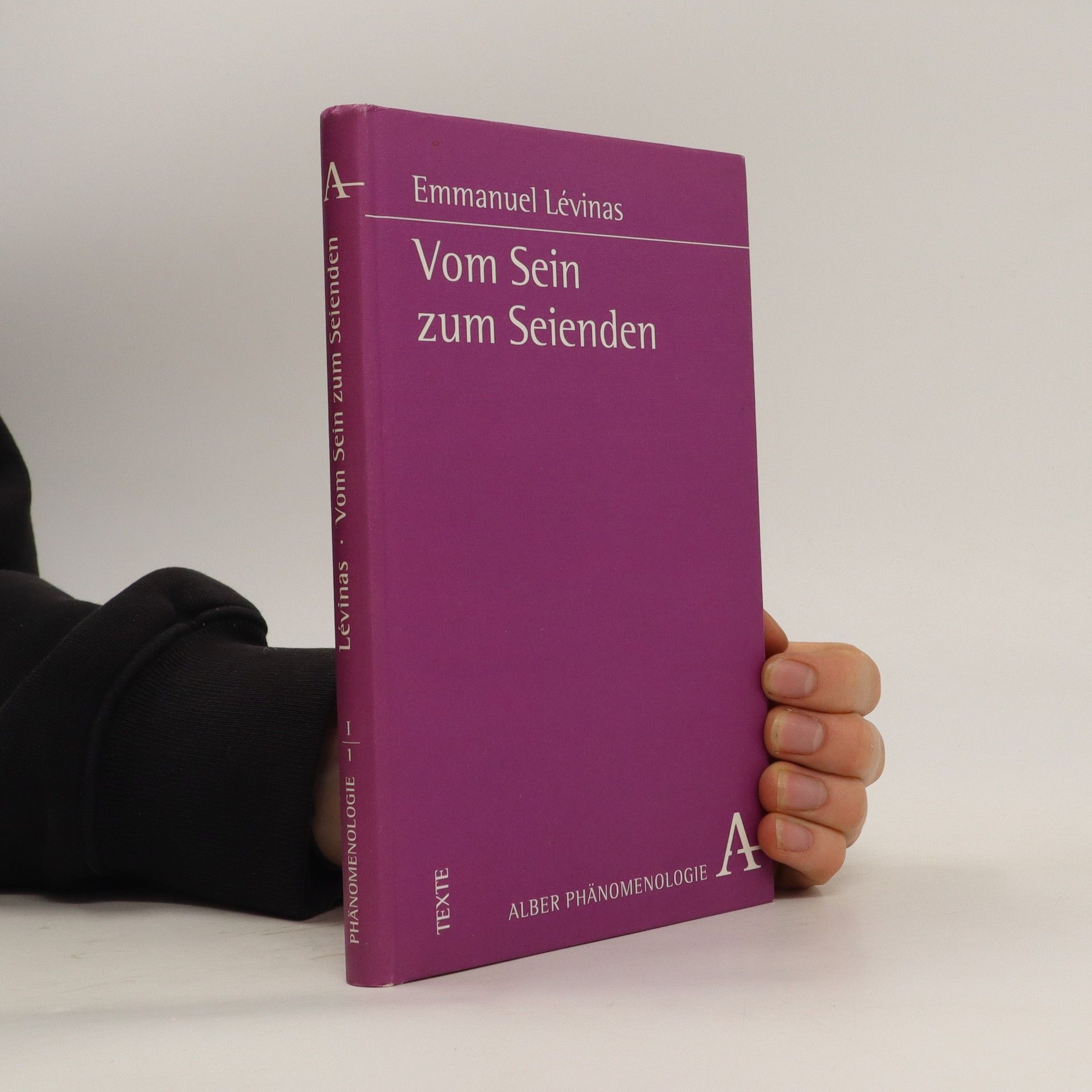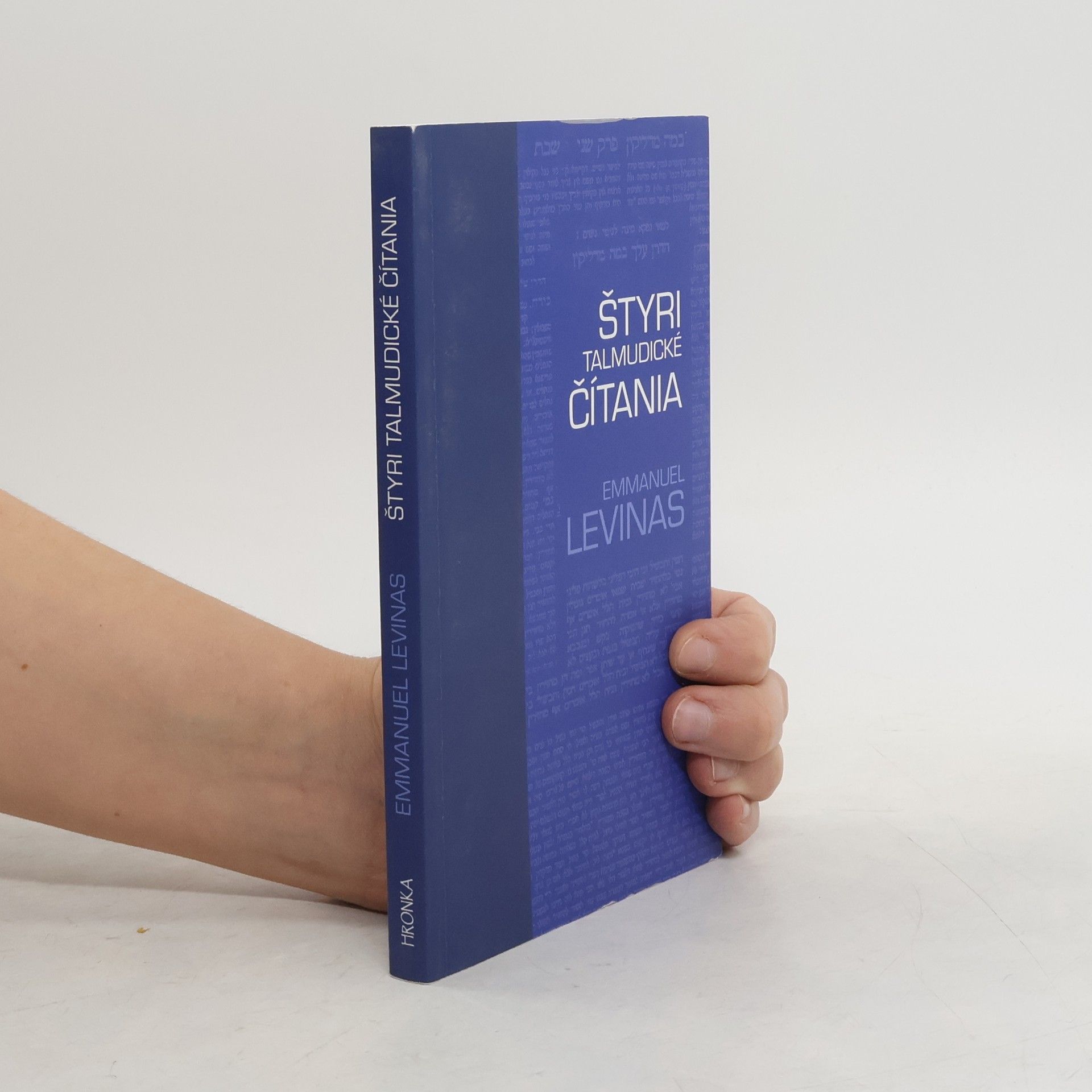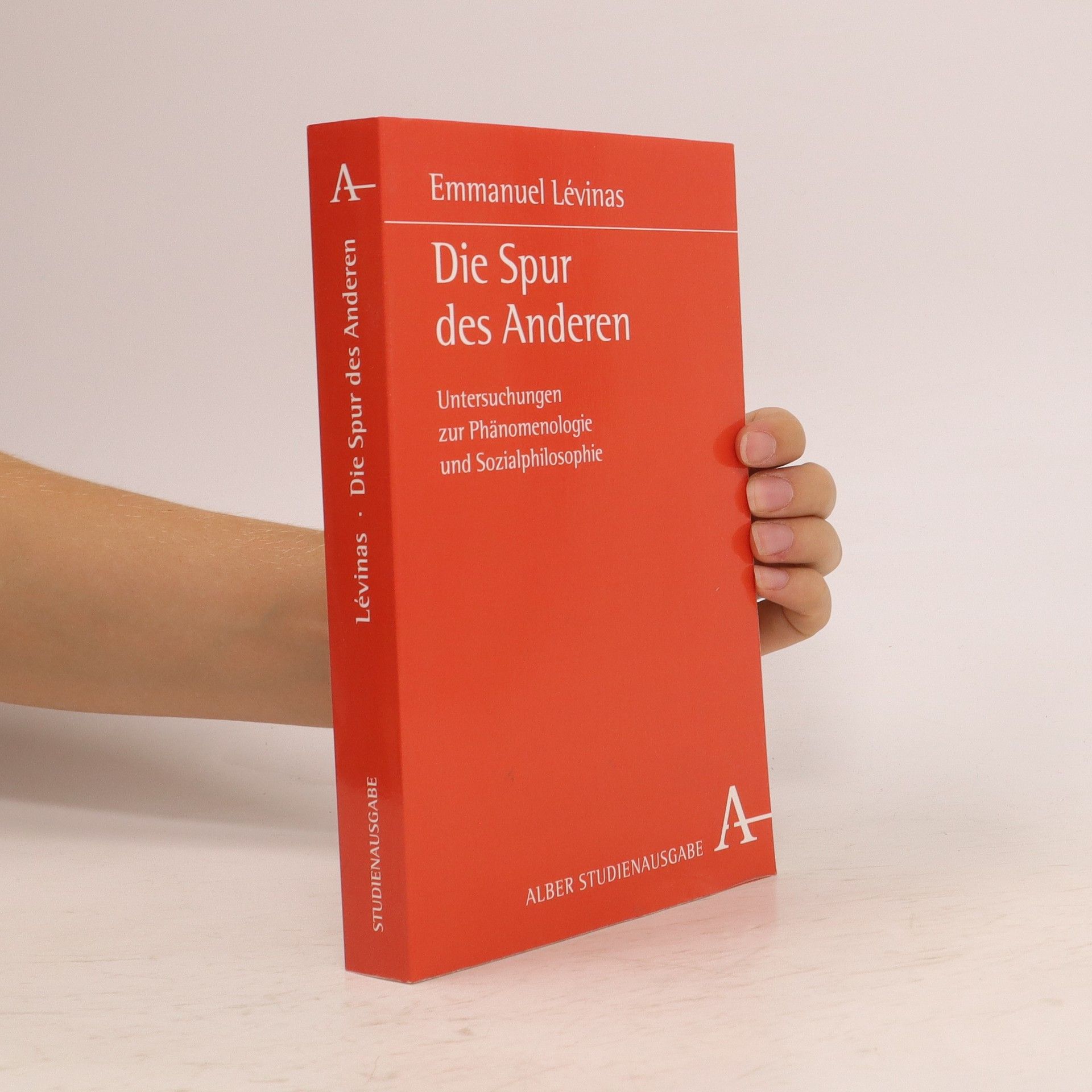Emmanuel Lévinas Libri
Emmanuel Levinas è stato un filosofo la cui opera si concentra sull'incontro etico con l'Altro. È stato un pioniere del concetto di 'etica come prima filosofia', affermando che la nostra responsabilità per l'altro precede ogni ricerca della verità oggettiva. Levinas sosteneva che l'Altro si rivela come trascendente e irriducibile alla mera oggettivazione da parte del sé. Le sue profonde esplorazioni affrontano la natura della soggettività, l'insostituibilità delle relazioni interpersonali e la fondamentale responsabilità etica intrinseca alla nostra esistenza.

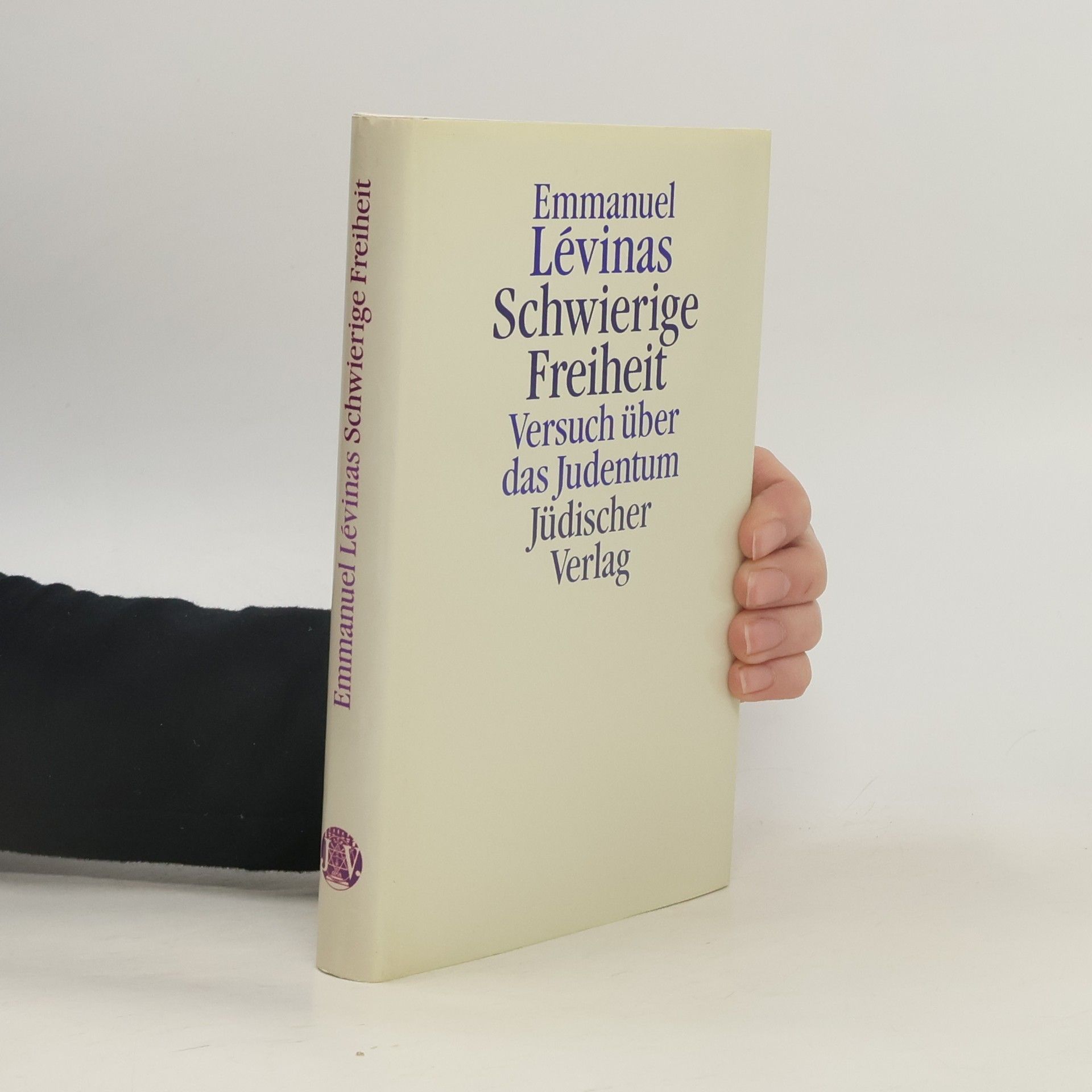


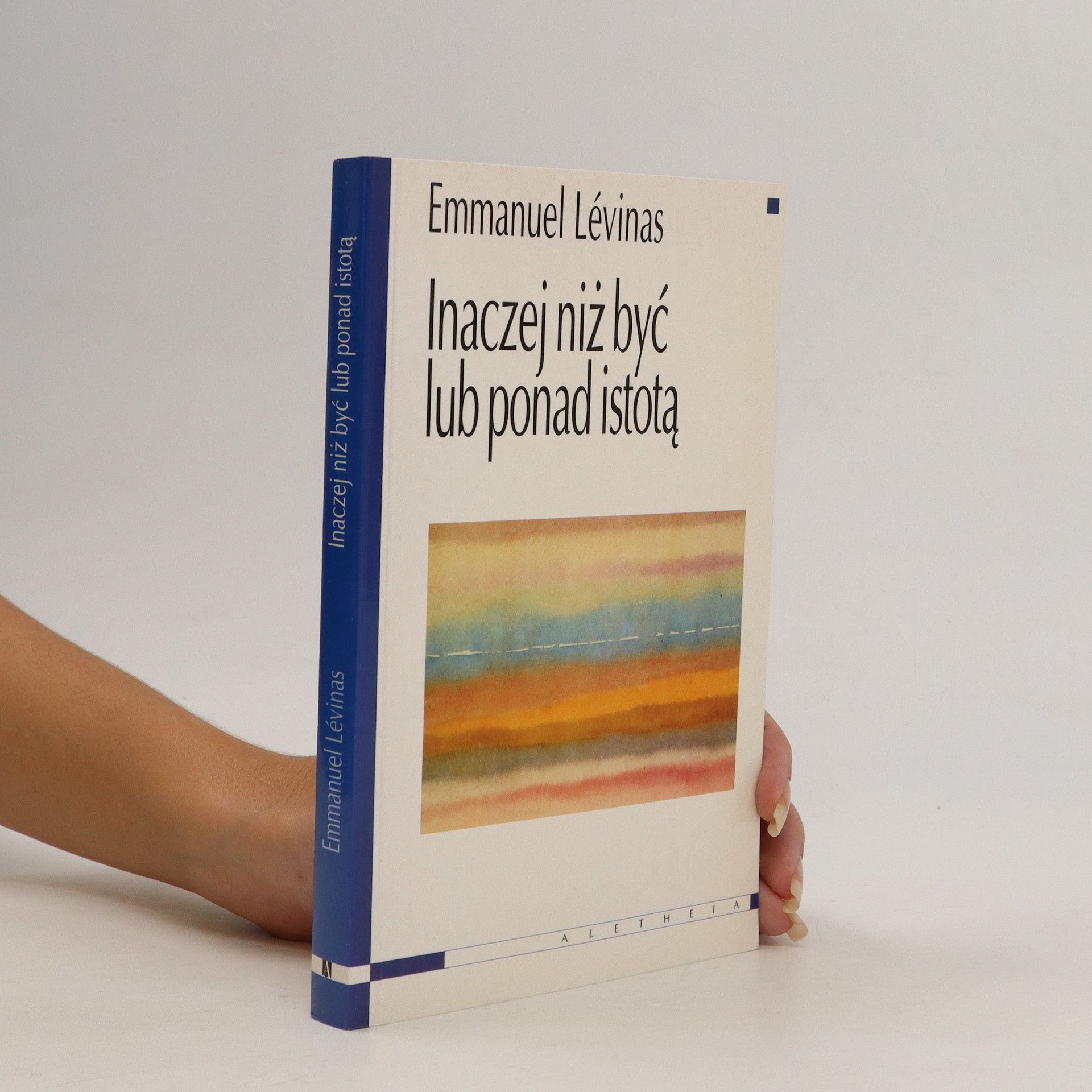

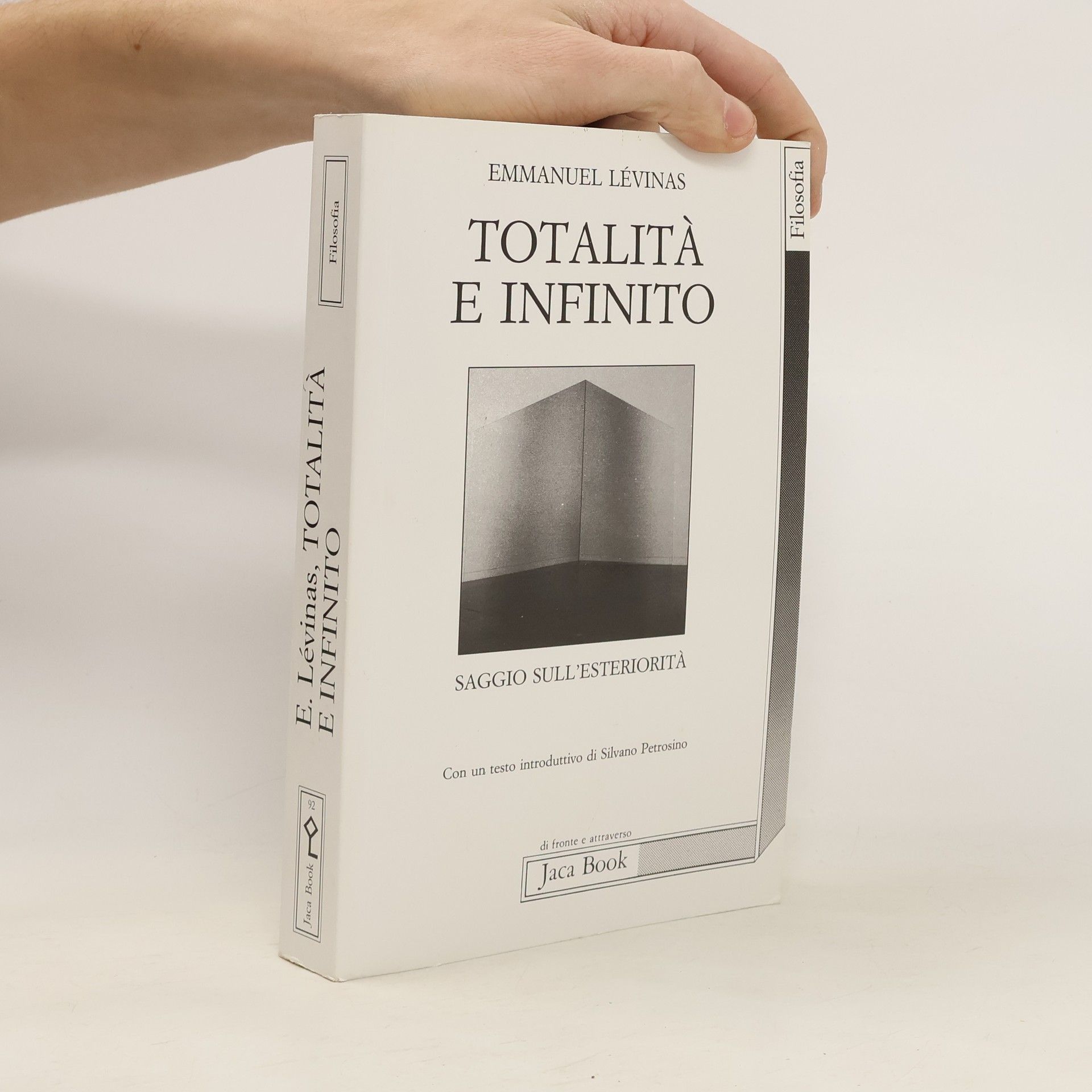
Objevování existence s Husserlem a Heideggerem
- 262pagine
- 10 ore di lettura
Kniha Objevování existence s Husserlem a Heideggerem (1967) obsahuje soubor textů, které Emmanuel Levinas – jedna z klíčových postav filosofie dvacátého století – věnoval myšlení zakladatelů fenomenologie. Tyto studie vznikaly v období pokrývajícím několik desetiletí. Úvodní část knihy obsahuje Levinasovy rané studie o Husserlovi a Heideggerovi, jejichž cílem je představit jejich myšlení francouzskému čtenáři. V dalších částech najdeme texty, ve kterých si Levinas se svými někdejšími učiteli vyrovnává účty, pokud jde o specifičtější otázky – o problematiku řeči, intencionality, počitku atd. Toto zaujetí odstupu mu potom umožňuje vybudovat v průběhu času svou vlastní, původní myšlenkovou pozici, která bude ve své rozvinuté podobě vyjádřena v knihách Totalita a nekonečno(1961) či Jinak než být aneb mimo esenci (1974). Konkrétní podoby rozvíjení této pozice lze sledovat v textech tvořících závěrečné partie přítomného souboru, v nichž jsou některé motivy ze zmíněných knih již zcela jasně naznačeny. Čtenáři se tímto způsobem dostává do rukou určité svědectví o filosofickém vývoji Levinase samotného, jež bezesporu umožňuje lépe uchopit jeho vlastní přínos pro francouzskou fenomenologii i pro filosofii obecně.
Inaczej niż być lub ponad istotą
- 307pagine
- 11 ore di lettura
Ethik und Unendliches
- 96pagine
- 4 ore di lettura
Ethik und Unendliches spürt der Entwicklung des Lévinas’schen Denkens nach. Das Buch, das nun in neuer Auflage erscheint, gilt als die beste Einführung in sein Werk. Emmanuel Lévinas wird heute als der wichtigste Philosoph einer zeitgenössischen Ethik erachtet, die die schrecklichen Erfahrungen des 20. Jahrhunderts berücksichtigen muss. Ethik ist für Lévinas keine Spezialdisziplin der Philosophie, sondern deren Kern. Die in diesem Band enthaltenen zehn Gespräche zwischen Emmanuel Lévinas und Phillippe Nemo folgen der Entwicklung des Denkens von Lévinas und gelten als die beste Einführung in sein Werk, das unter anderem auch für Jacques Derrida ein wichtiger philosophischer Bezugspunkt war. Die Gesprächsform dieses Buches gestattet es Lévinas, immer wieder auf die Verknüpfung seiner philosophischen Themen mit lebens- und zeitgeschichtlichen Erfahrungen hinzuweisen, und macht es zu einer gut lesbaren Darstellung seiner Philosophie.
Ethik als Erste Philosophie
Aus dem Französischen übertragen und mit einem Nachwort versehen von Gerhard Weinberger
- 96pagine
- 4 ore di lettura
Schwierige Freiheit
- 185pagine
- 7 ore di lettura
Vom Sein zum Seienden
- 184pagine
- 7 ore di lettura
Dieses schon vor dem Zweiten Weltkrieg konzipierte und zum Teil in deutscher Gefangenschaft redigierte Buch macht das Bewusstsein der Gefangenschaft des Menschen zum Thema. Die Erfahrung der Gefangenschaft artikuliert sich in der tragischen Verstrickung des Menschen in die Vergangenheit, die Lévinas als die Seinsverstrickung des Menschen vorführt. Die Perspektive einer Befreiung wird dem Menschen jedoch nicht aus eigener Kraft zuteil, sondern aus der Beziehung zum Anderen, zum Weiblichen. Lévinas versteht seine Analyse des Weges vom Sein zum Seienden und vom Seienden zum Anderen zugleich als eine Analyse der Zeit. „Ein trotz des geringen Umfangs großes, weil reiches und konzentriertes Buch.„ Süddeutsche Zeitung „Reich an Einzelstudien, die die phänomenologische Schule verraten, ist das opusculum ein gedanklich dicht gedrängter, origineller Versuch über das Subjekt. Bemerkenswert auch, dass die Apologie des Subjekts auf Zentralbegriffe und -topoi jüdischer und christlicher Tradition zurückgreift und sie reinterpretiert.“ Theologische Revue
Štyri talmudické čítania
- 214pagine
- 8 ore di lettura
Kniha je prvým knižným prekladom Levinasa do slovenčiny. Obsahuje štyri prednášky (Voči blížnemu, Pokušenie pokušenia, Zem zasľúbená alebo zem dovolená, Strý ako svet), prednesené v rokoch 1963-1966 na kolokviu židovských intelektuálov v Paríži. Tieto talmudické komentáre sú, ako hovorí Levinas, pokusom preložiť židovské myslenie do jazyka súčastnosti. To znamená, že na jednej strane objasňujú prostredníctvom židovských textov problémy, ktorým čelíme dnes, na druhej strane vysvetľujú zmysel týchto textov prostredníctvom súčasných problémov.
Jenseits des Buchstabens
- 159pagine
- 6 ore di lettura
»Warum: Jenseits des Buchstabens? Weil die fest konturierten Verse, in die man die Heiligen Schriften zerlegt hat, Rätsel aufgeben, obwohl ihr Sinn auf der Hand liegt. Der offenbare Sinn verlangt eine Hermeneutik, die aus der unmittelbaren Bedeutung des Satzes jene herausarbeiten soll, die nur implizit in ihm liegen. Sind die so herausgeholten Bedeutungen dann eindeutig? Auch sie müssen, auf andere Weise, interpretiert werden.« (Aus dem Vorwort) In den Talmud-Lesungen tritt auf unterschiedlichen Wegen dieses »Jenseits des Buchstabens«, dieses unaufhörliche Wenden der Deutung in Kraft. Dabei begreift Levinas die Theologie als Theo-Logik, eine rationale Weise, von Gott zu sprechen. Die Themen der Lektionen: »Das Modell des Westens«, »Asylstädte«, »Wer lacht als Letzter?«, »Der Pakt«. Neben den vier Talmud-Lesungen enthält der Band den Text »Über religiöse Rede und Gottesfurcht« - Paul Ricoeur zu seinem 65. Geburtstag gewidmet -, der sich auf die Normen der religiösen Rede bezieht, die man Gebet nennt.
Die Spur des Anderen
Untersuchungen zur Phänomenologie und Sozialphilosophie
Lévinas verabschiedet das durch die Selbstherrlichkeit des Ich geprägte Seins-Denken zugunsten einer Ethik als neuer Erster Philosophie. Alles Denken, so seine Überzeugung, das vom Ich oder Selbst ausgeht, bleibt im Grunde allein und schließt den Anderen aus, ja vernichtet ihn in letzter Konsequenz. Doch der Andere ist immer schon da. er begegnet als „Antlitz': als Verbot „Du sollst mich nicht töten', als Gebot „Du sollst mich in meinem Sterben nicht allein lassen'. Diese Begegnung, als Schock erlebt, reißt das Ich aus dem Schlaf der Selbstgewissheit.
